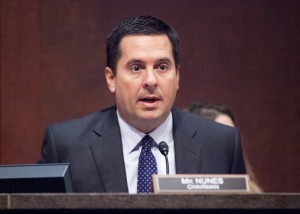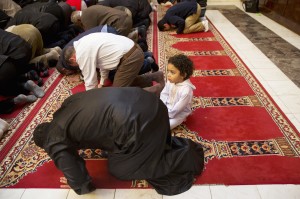
A majority of Americans say they support warrantless government surveillance of the Internet communications of U.S. citizens, according to a new poll by The Associated Press and the NORC Center for Public Affairs Research.
It’s at least somewhat important for the government to sacrifice freedoms to ensure safety, most say in the survey.
Here are some things to know about public opinion on civil liberties from the AP-NORC poll:
Most support warrantless surveillance
According to the new poll, 56 percent of Americans favor and 28 percent oppose the ability of the government to conduct surveillance on Internet communications without needing to get a warrant. That includes such surveillance on U.S. citizens.
Majorities both of Republicans (67 percent) and Democrats (55 percent) favor government surveillance of Americans’ Internet activities to watch for suspicious activity that might be connected to terrorism. Independents are more divided, with 40 percent in favor and 35 percent opposed. Only a third of Americans under 30, but nearly two-thirds 30 and older, support warrantless surveillance.
The poll finds that for most Americans, safety concerns trump civil liberties at least some of the time.
More than half — 54 percent — say it’s sometimes necessary for the government to sacrifice freedoms to fight terrorism, while 45 percent think that’s not necessary. On a more general level, 42 percent say it’s more important for the government to ensure Americans’ safety than to protect citizens’ rights, while 27 percent think rights are more important and 31 percent rate both equally.

Terrorism concerns rising
Concerns about terrorism have risen since 2013. In the latest poll, nearly 6 in 10 Americans say they are at least somewhat concerned that they or their family might be victims of a terrorist attack, after just 3 in 10 said so two years ago.
Six in 10 Americans now think that the recent attacks in Paris and San Bernardino, California, indicate an increased risk of attacks against Western countries, while 37 percent think the risk is about the same as it was before. Three-quarters of Republicans and majorities of both Democrats and independents think the attacks are an indication of increased risk.
Americans are similarly concerned about both domestic terrorism and possible attacks by Islamic extremist groups, with about 6 in 10 saying they’re at least somewhat concerned about each.
Democrats and Republicans are about equally likely to say they’re concerned about domestic terrorism, but Republicans are much more likely than Democrats to say they’re concerned about attacks by Islamic extremists, 67 percent to 47 percent.
Mixed opinions on protecting rights
Americans have mixed views of how the government is doing at protecting their rights.
Seven in 10 say the government does at least a somewhat good job protecting the right to vote, and nearly 6 in 10 say it’s doing a good job of protecting freedom of speech and of the press. More than half say it’s doing a good job of protecting religious liberties.
But just 4 in 10 Americans rate the government’s performance as good on protecting the right to equal protection under the law, freedom from unreasonable search and seizure, or the right to bear arms.
Democrats are significantly more likely than Republicans to say the government is doing a good job of protecting the right to freedom of religion, 64 percent to 49 percent.
On protecting the right to bear arms, 46 percent of Democrats and just 33 percent of Republicans think the government is doing a good job.
Divide on religious liberties
Majorities of Americans think it’s important to protect religious freedoms for a variety of religious groups, including Christians, Muslims and Jews.
But they’re significantly more likely to say so of some groups than others. While 82 percent of Americans in the poll say that it’s extremely or very important that Christians be allowed to freely practice their religion in the United States, just 61 percent say the same for Muslims. Seventy-two percent say religious freedom is important for Jews, and 67 percent say the same of Mormons. And 63 percent say it’s important to protect the freedoms of people with no religion.
Among Republicans, 88 percent say it’s important that Christians be able to worship freely and 60 percent say so of Muslims. Among Democrats, too, there’s a gap, with 83 percent saying religious liberties are important for Christians and 67 percent saying so for Muslims.
Eight in 10 Americans say it’s very or extremely important for people like themselves to be allowed to practice their religion freely.
The AP-NORC Poll of 1,042 adults was conducted online and by phone Dec. 10-13 using a sample drawn from NORC’s probability-based AmeriSpeak panel, which is designed to be representative of the U.S. population. The margin of sampling error for all respondents is plus or minus 3.9 percentage points.
Respondents were first selected randomly using address-based sampling methods, and later interviewed online. People selected for AmeriSpeak who didn’t otherwise have access to the Internet were interviewed over the phone.




